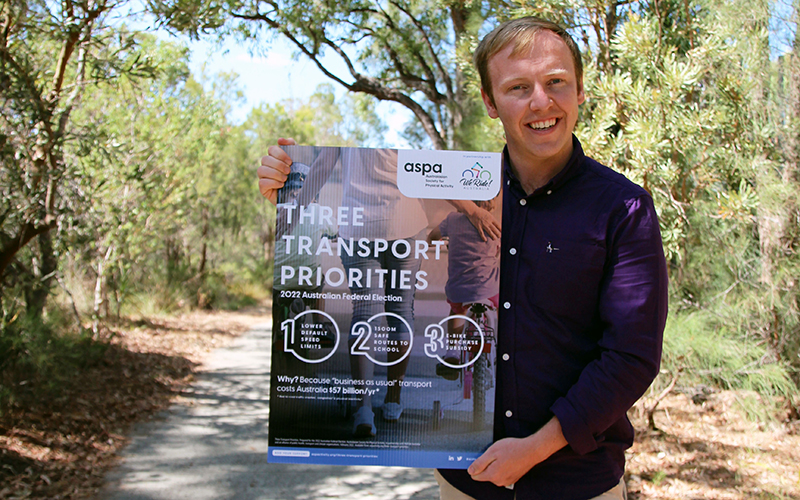Search

News & Events
State Government boost for vital child health researchEight The Kids Research Institute Australia-led projects will benefit from a Western Australian Government boost to health research for the State’s children and young people.

News & Events
Urgent action needed to tackle health impacts of climate changeThe Kids Research Institute Australia supports calls from the Intergovernmental Panel on Climate Change (IPCC) for transformational action if we are to secure a liveable future.

News & Events
Federal politicians urged to adopt transport priorities that keep kids happy, healthy and safeThe Kids Research Institute Australia has backed a series of transport priorities to keep children safer on the roads, boost physical activity levels, and save the economy billions of dollars.

News & Events
Let the children speak: report calls for kids’ voices to be included in government policyA new The Kids Research Institute Australia-led report into the impact of state and national policy on children’s health has called for kids and families to have more say when it comes

News & Events
PhD scholarship paves the way for Australia-first healthy skin projectA The Kids Research Institute Australia PhD student has been awarded Western Australia’s only 2022 postgraduate scholarship by the National Health and Medical Research Council

News & Events
Biobank funding supports valuable research resourcesFour The Kids Research Institute Australia-based biobanks which underpin a range of cancer, respiratory and early life research have received more than $450,000 in funding.

News & Events
Funding boost for digital health programThe Kids Research Institute Australia is pleased to share in $490,000 in State Government funding designed to provide vital support to WA’s innovation sector in the wake of COVID-19.

News & Events
Up and at ’em: The Kids physical activity researcher named a WA Young Tall PoppyA The Kids Research Institute Australia researcher focused on promoting more active childhoods to improve child health and wellbeing will be named amongst WA’s most outstanding young scientists at the upcoming 2020 Young Tall Poppy Science Awards.
Research
Longitudinal surveillance of group A streptococcal pharyngitis and impetigo in remote Western Australian school children informs acute rheumatic fever preventionThe prevalence of impetigo and pharyngitis - which are both superficial group A streptococcus (GAS) infections that precede acute rheumatic fever - is poorly defined. Guidelines recommend the early diagnosis of both infections to prevent ARF; however, screening to enable the concurrent detection of these infections in high-risk populations has rarely been performed.
Research
Caudal block, high flow oxygen insufflation and dexmedetomidine sedation for inguinal hernia surgery in infants—A prospective evaluation of an alternative anesthesia techniqueInguinal hernia repair is the most common operation in infants, with well recognized anesthetic and perioperative risks. The aim was to investigate if the combination of caudal block, high-flow nasal oxygen insufflation and intravenous dexmedetomidine sedation is suitable for infants undergoing inguinal hernia surgery.
